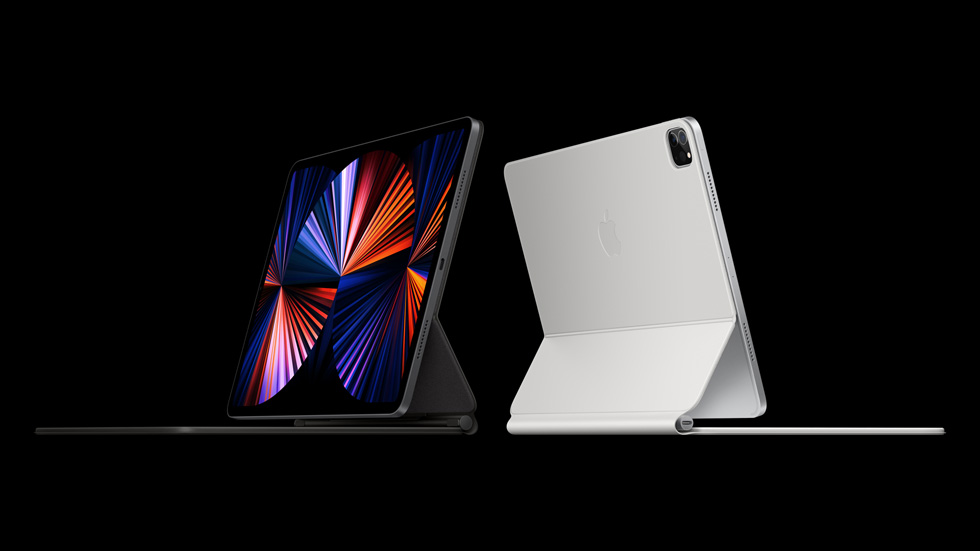Many people expected the new iPad Pro to feature a variation of the A14 Bionic chip in the iPhone 12 series. Apple would use an A14X processor in typical fashion with the A-series chip nomenclature for the iPad Pro, but the System-on-Chip (SoC) would be closer to the M1 than the A14. Reports preceding Apple’s spring event said that the 2021 iPad Pros would be as powerful as the M1 Macs that Apple launched last November. Apple surprised everyone during the show, putting the same powerful M1 processor inside both the 11-inch and 12.9-inch iPad Pro models. This gave the new iPad Pros more power than any other tablet out there and more power than Intel-based laptops. As we’ve already explained, the M1 iPad Pro has too much power than it needs, although Apple already teased that developers might use all that extra headroom for more advanced applications — and Apple also happens to be an iPadOS developer.
The new iPad Pros are available to preorder, and the first reviews should drop next week, according to recent leaks. The first benchmark tests are already here, confirming that the iPad Pro will be a considerable problem for both Intel and Android tablet makers.
First found by MacRumors, the Geekbench 5 tests for the 12.9-inch iPad Pro reveal the M1 scores over 1,700 points in single-core tests and nearly 7,300 in multi-core tests. The results prove that Apple’s performance claims for the new iPad Pros were correct — that the tablets are 50% faster than the previous generation. The M1 is 56% faster in single-core and 51% faster in multi-core tests than the A12Z SoC powering the previous iPad Pro series.
The M1 iPad Pro’s multi-core scores are similar to the M1 MacBook Air, and both of them outperform the Core i9 chip inside the 16-inch MacBook Pro (6,845). That’s an older Intel chip, and Intel has just updated its mobile processors, but the comparison still stands. Intel ran an aggressive campaign against the M1 MacBooks in recent months, a campaign that largely backfired, making Intel look bad rather than Apple’s brand new desktop-grade processors.
These early Geekbench tests show that Apple wasn’t lying about the iPad Pro’s performance. The company did not alter the chips in any way, and the M1 powering the iPad Pro will deliver the same speed as the M1 in macOS laptops and desktops.
We already explained why the M1 is only the first phase of Intel’s ARM nightmare. Apple is showing other chipmakers what a custom ARM processor can do. It’s not just suitable for smartphones and tablets; it can power traditional computers too. Microsoft is also interested in ARM-powered computers, and Qualcomm has been making its own desktop ARM SoC for years. Samsung might also want to follow Apple’s footsteps, and Google is making its own ARM chips for Pixel devices. The M1 will be the processor to beat. And this will put extra pressure on Intel and AMD.
But the M1 iPad Pro is also a nightmare for Android tablet makers. No iPad Pro rival can compete with the M1 — and there aren’t that many, to begin with. What’s even worse is that Apple will continue to launch M-series successors in the coming years. As the M1 ages, it might be fitted inside iPad Airs and cheaper iPads that compete against mid-range Androids.
When Apple teased that it’s up to developers to use the extra power that the M1 brings to the iPad Pro, we speculated that Apple can’t yet talk about its own innovations for iPadOS that can take advantage of the M1’s performance. iPadOS 15 might bring additional improvements to take advantage of the M1 speed and Pro apps that are usually seen on desktops. These sorts of features would also be bad news for Android and Intel. Why buy an Android tablet or Intel-powered laptop when an iPad Pro can handle an increasing number of tasks and deliver regular tablet computing in a single package?







